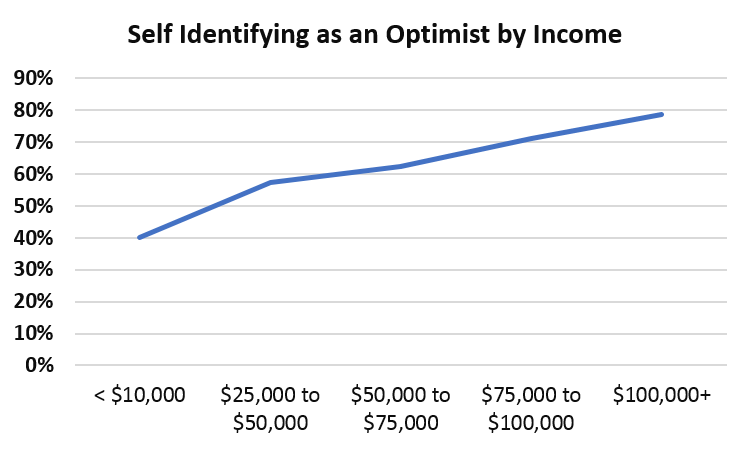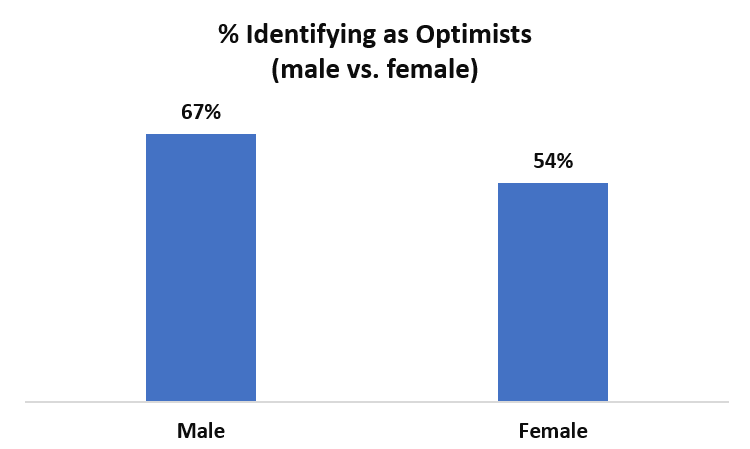What makes an optimist and optimist?
There are several ways to define what an optimist is, but we like the simple definition that states “an optimist is a person who tends to be hopeful and confident about the future or the success of something.”
That’s simple, direct and to the point.
Americans are generally known for their optimism. In many ways, America’s philosophical underpinnings are optimistic at their core. It is hard to imagine that a country like the United States could be founded by a people who were not optimistic about who they were and where they were going.
And so perhaps it’s not a huge surprise that when we went out and polled a random sample of adult Americans to determine how many people consider themselves to be optimists, we found a clear majority, 61%, consider themselves to be optimists.
(For those needing some help on finding their inner optimist, check out some of these fabulous self-help books available at the world’s largest online retailer!)

While there were variations by in whether or not people considered themselves to be optimists by age, no clear trend emerged indicating that being younger or older made people feel more or less optimistic.

However, we did find that levels of income and education directly correlated to feelings of optimism. Have a look at the two graphs below – one shows the percentage of respondents who consider themselves to be optimists by income…

…and the other shows the same by their educational attainment.

In both cases, having more of either trait – income or education – resulted in a greater percentage of each group identifying as optimists (A.
We also found a significant difference when looking at responses to this question by gender. Overall, men (by a 13-point margin) were more likely to self-identify as optimists than women (67% vs. 54%, respectively).

Lastly, we found an interesting correlation with two political factors we tested.
First, we looked to see if there were any meaningful differences to how people self-identified (i.e., as optimists or not) by how they voted in the 2016 Presidential Election.
We found that those who voted for Donald Trump were more likely to self-identify as optimists compared to those who voted for Hillary Clinton. In fact, the spread between these groups was 18-points, with 72% of Trump voters self-identifying as optimists vs. 54% for Clinton voters.

Along a similar (political) vein, we found conservatives were more likely to self-identify as optimists (76%), vs. those who say they are more “middle-of-the-road” types (60%) vs. liberals (56%).

Perhaps if the election had come out differently, these numbers would be different. Or perhaps, it’s a more permanent and deeper feature of the personality types that gravitate towards these different ways of looking at the world.
Whatever the answer – we’ll leave it at that for now.